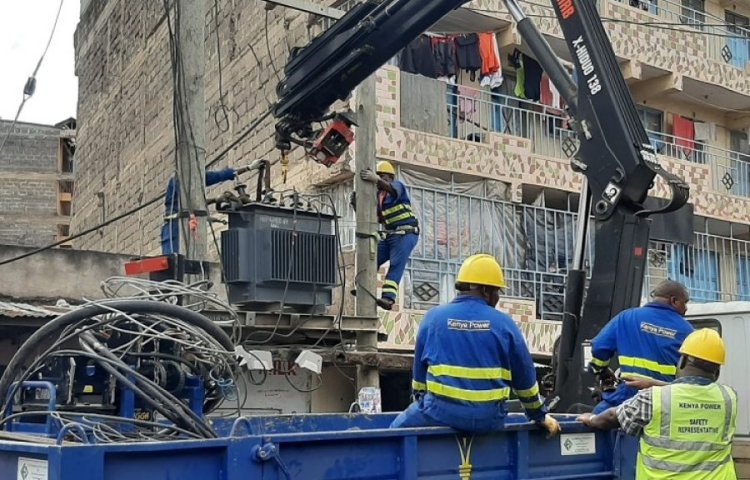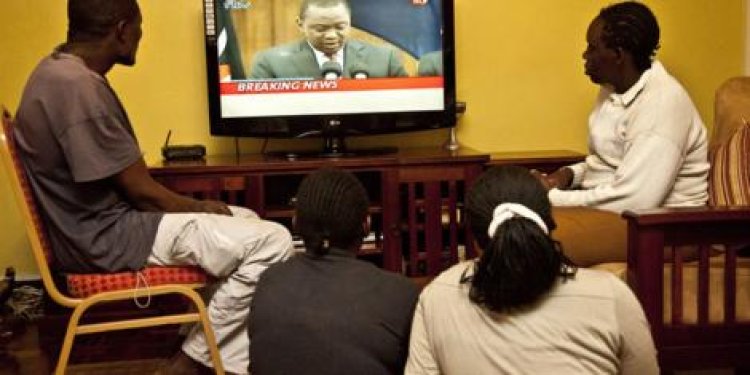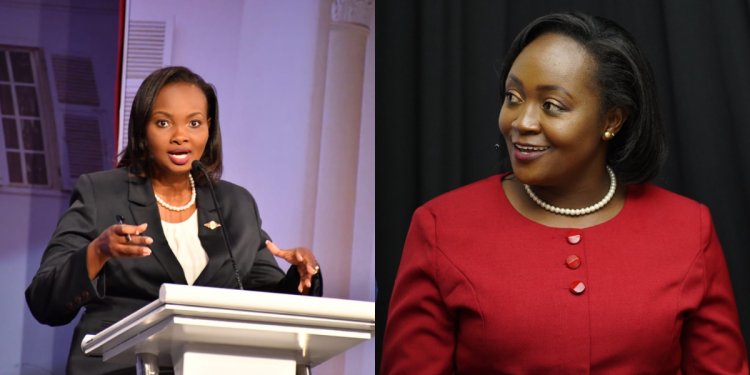Kenya Power Explains Blackout During Presidential Debate
The blackout was reported widely by a number of Kenyans who were suddenly left in the dark while following the highly anticipated debate attended by Deputy President William Ruto alone.

The Kenya Power and Lighting Company (KPLC) has issued a statement after a power outage was reported in some parts of the country during the just-concluded presidential debate.
The blackout was reported widely by a number of Kenyans who were suddenly left in the dark while following the highly anticipated debate attended by Deputy President William Ruto alone.
In a statement on Tuesday evening, July 26, the utility firm explained that a system disturbance at one of its high voltage power lines affected several power circuits, thus affecting power generation between the Muhoroni Gas turbine station and the Turkwell hydropower station.

Kenyans watching TV at home. /FILE
This triggered the blackout, which almost lasted an hour when Kenya Power's engineers stepped in to rectify the issue and restore the power supply.
"At 8.12 pm this evening, we experienced a system disturbance at the Kisumu-Muhoroni high voltage transmission power line that tripped several power circuits and affected power generation from Muhoroni Gas Turbine station and Turkwell Hydropower Station.
"The shortfall caused power outages in parts of Western, South Nyanza, North Rift, Central Rift and Nairobi North. Our system engineers immediately commenced restoration works and normalised power to all areas by 9.07 pm," Kenya Power stated, further apologising to Kenyans for the inconveniences.
The ensuing blackout saw Kenyans resort to tuning into the debate on YouTube, with some local media houses, according to independent spot checks, having over 200,000 people watching the proceedings of the debate through their respective channels.
A recent survey by the Media Council of Kenya (MCK) revealed that 34 million Kenyans watched the deputy presidential debate that took place on Tuesday, July 19.
Out of the 34 million, that is 82 per cent of the country's population, 70 per cent watched the second session of the debate, which featured Azimio la Umoja coalition presidential running mate, Martha Karua against the United Democratic Alliance (UDA) presidential running mate, Rigathi Gachagua.
Five per cent of Kenyans however watched the first session of the debate featuring Justina Wamae of the Roots Party against Ruth Mucheru of the Agano party. 30 per cent watched both debates, with 18.5 million of those who followed the debates being registered voters.
76 per cent of those who followed the debates watched them live on television, which translates to three-quarters of the viewers. 19 per cent followed it on the radio while 10 per cent, translating to 3.4 million, followed it on social media platforms.
Seven million Kenyans had accessed their radios and TVs via the internet, with YouTube being the main choice at 65 per cent followed by Facebook at 31 per cent.
"In terms of TV viewership, the findings further indicated that 67 per cent watched the debate on Citizen TV followed by Inooro TV and NTV at 8 per cent each, while KTN and KBC came third at 7 per cent each. On the radio platform, Radio Citizen was most watched at 41 per cent followed by Ramogi FM and Radio Jambo each at 7 per cent," read MCK's statement in part on Friday, July 22.

Justina Wamae vs Ruth Mucheru Mutua during the Deputy Presidential Debate. /VIRALTEAKE






